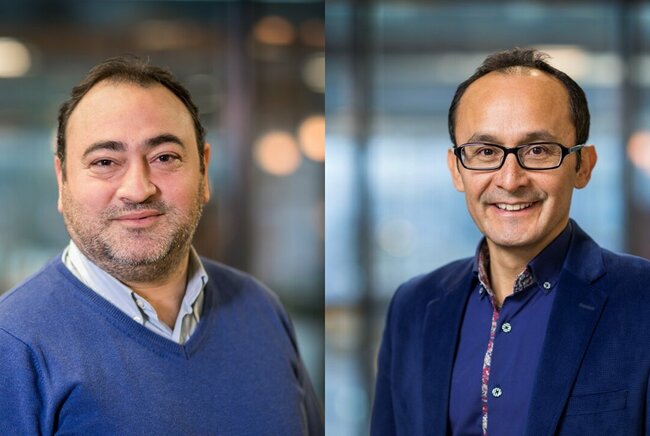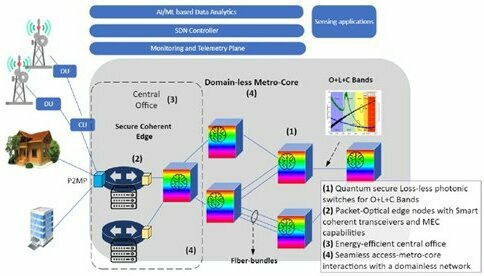Paving the way for 6G Networking-European ALLEGRO project to design a novel end-to-end sliceable, reliable, and secure architecture for next-generation optical networks
TU/e researchers Idelfonso Tafur Monroy and Nicola Calabretta are part of the project and will contribute with solutions for the next generation end-to-end data plane transport and quantum robust communications.

ALLLEGRO targets designing, prototyping, and demonstrating a novel end-to-end solution for next-generation optical networks. ALLEGRO integrates packet-optical transport architecture satisfying four key pillars for the next generation telecommunication systems: (i) ultra-high-capacity from access to the core; (ii) considerable reduction of power consumption and cost; (iii) autonomous network control management exploiting artificial intelligence / machine learning for ultra-high-capacity multi-domain optical systems; and (iv) secured and reliable optical transmission.

The Allegro consortium consist of 23 European organisations and will develop an autonomous, smart and sliceable packet-optical network meeting beyond 5G and and 6G end-to-end network requirements in terms of latency, energy, security, synchronisation and bandwidth availability. This ambitious research project in Optical networks comes with an overall budget of €12M and will be developed over 42 months as off January 2023. The consortium aims at designing and validating a novel end-to-end sliceable, reliable, and secure architecture for next-generation optical networks, achieving high transmission/switching capacity -- with 10 Tb/s for optoelectronic devices and 1 Pbt/s for optical fiber systems --; low power consumption/cost -- with > 25% savings -- and secure infrastructures and data transfers.
Impact on society and TU/e’s role in ALLEGRO
The ALLEGRO project will impact society, showing the evolution towards a world with increased needs of connectivity and higher capacity in support of new services and new traffic patterns. Such digital infrastructures shall be secure against security attacks and yet satisfy strict requirements for ultra-low latency, energy efficiency and efficient and manageable use of resources. TU/e is contributing with photonic solutions for optical switching, test, and validation of quantum secure communications based on quantum key distribution (QKD) for control and management plane of 6G networks and edge networking applications.
Consortium and partnership
The ALLEGRO consortium consists of a team of 23 organizations, including Eindhoven University of Technology, covering the complete spectrum from advanced research to the market. Its main strength relies on the combination of highly skilled partners with proven track records in optical networks .
Project coordinator of ALLEGRO is Fraunhofer IZM and the consortium includes partners from 10 countries: 3 telecom operators; 4 vendors; 5 SMEs; 11 research centres and academia (6 academic partners, 5 Research Organisations), combining several years of experience and a successful track record in past European projects on related technologies.
More Info:
About Horizon Europe
Horizon Europe is the biggest EU Research and Innovation program ever with nearly €80 billion of funding available over 7 years (2014 to 2020) – in addition to the private investment that this money will attract. It promises more breakthroughs, discoveries and world-firsts by taking great ideas from the lab to the market. For more info: https://www.allegro-he.eu/ https://cordis.europa.eu/project/id/101092766 LinkedIn: https://www.linkedin.com/company/allegro-he
ALLEGRO is funded by grant agreement No: 101092766 from the European Commission (Horizon Europe program).